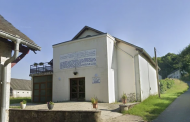Sarah Rashad
Once again, the ruling reconciliation government in Tripoli and the Islamist groups call upon Italy to stop the progress of the Libyan national army forces towards the capital.
In an interview with the newspaper Corriere della Sera, Prime Minister Faiz Al-Serraj alleged that the army’s entry into the capital would result in about 800,000 Libyans in Italy.
This is not the first time that the reconciliation government calls for the international community in general and Italy specifically against the forces of the Libyan National Army. Al-Serraj’s remarks coincide with the visit of the Vice-President of the reconciliation government, Ahmed Maitiq, to Rome to discuss the situation in Libya and inform the Italian side on the latest developments.
The government’s appeal for support from Italy, in particular, explains the well-known position of Rome by standing alongside the Islamist groups in Libya, treating them as expressing their interests.
Since the start of the “Tufan al Karama” operation on April 4 to liberate the Libyan capital Tripoli from armed militias, Rome has been issuing hostile statements to the operation, demanding the Commander-in-Chief of the Libyan Armed Forces, Marshal Khalifa Hafer, to retreat to the east.
In its latest move against the military operation of the Libyan army, Italy opened a link with Qatar to support the arming of militias in Libya, to prevent the arrival of the army to the capital. On Monday (April 15th), the Italian News Agency reported the reception of Italian Foreign Minister Enzo Mwaviro Milanese, Minister of Foreign Affairs of Qatar, Mohammed bin Abdulrahman bin Jassim Al-Thani, at the Ministry’s headquarters in Rome.
The meeting “allowed for a deep exchange of views on the latest dynamics of the Libyan crisis,” while Italian Prime Minister Giuseppe Conte, after the meeting, asked Marshal Khalifa Hafer, to stop military operations and withdraw troops from Tripoli
Italy’s renewed positions and cooperation between Doha and Rome on the Libyan issue, talk about the escalation of the government of reconciliation abroad, against the Libyan army, in return for retaining power.
In this regard, the Libyan researcher Abdel Basset Ben Hamel said in a press statement that the reconciliation government and the presidential council behind it turned Tripoli into a “fourth beach” of Rome by seeking to retain power.
The Libyan researcher ruled out that the efforts of the reconciliation government and Italy to stop the entry of the Libyan army capital, stressing that the military operation in the capital will result in the final uprooting of the interests of Italy and the Islamists alike from Libya.
This is explained by the Italian attempt to thwart the military action of the Libyan army in the capital, while observers are concerned that the Italian move beyond diplomatic efforts to participate on the battlefield, especially as Rome maintains troops in the city of Misrata, a total of 400 soldiers, and observers expected that Italy would take part in the battles, if decided, different forms next to the payment of soldiers, such as paid military experts that are planning the forces of reconciliation.
In addition to Italy, the Qatari side is expected. Observers expect Qatar to be involved in the fighting by providing terrorists with arms and money, diplomatically defending them and using a media message to serve them.








































admin in: How the Muslim Brotherhood betrayed Saudi Arabia?
Great article with insight ...
https://www.viagrapascherfr.com/achat-sildenafil-pfizer-tarif/ in: Cross-region cooperation between anti-terrorism agencies needed
Hello there, just became aware of your blog through Google, and found ...